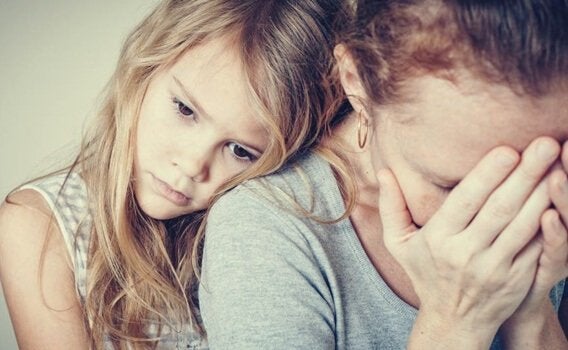Children of parents with paranoid personalities exist, although invisible to society, suffer the effects of disorganized attachment, emotional instability that leaves marks and a very debilitating dysfunctional environment, are children at increased risk of mental disorders. families need more social and medical assistance.
People with personality disorders, schizophrenia, dissociative disorders, among others, also fall in love, have children and form their own families, this is obvious. However, many of them, without adequate social and family support, end up living in extreme situations that remain in the shadows, we are talking about problematic dynamics that we are not always aware of.
- Mental health or social work professionals working with sick adults should consider children and adolescents growing up in an environment where one member suffers from a psychological disorder.
It is very common, for example, for patients with paranoid personalities to neglect their treatments, it is also common to be characterized by a bad relationship with their loved ones, all this sets up very complex situations, where children are, without a doubt, the most vulnerable link, so we have to give a little more visibility to these realities that occur very close to us in the day to day , the disease generates situations that require our attention and sensitivity.
To this day, we still don’t know what or why this type of disorder develops. In general, it is assumed to be the result of this complex triad where biological, genetic and social factors are added. It should be noted that a paranoid personality is one of the most debilitating psychiatric conditions for several reasons. It affects all areas of a person’s life, hindering all personal, family and professional relationships.
Let’s look at some features
Several studies have been conducted to know what impact a paranoid parent has on the education of his children, it should be noted, first of all, that the problem in these cases is twofold, it should not be forgotten that this disorder has a genetic factor In other words, there is a clear risk that the prevalence of this disease will be transmitted from one generation to the next.
However, genetics never 100% determines the risk of developing a psychological disorder, what most determines our environment are the parental models received, that is where the real problem lies, we will certainly see below what scientific research tells us about how children of paranoid parents tend to grow and mature.
Children of parents with paranoid personalities undoubtedly need personalized psychosocial intervention, however, because the effects of an incoherent and unpredictable family environment are widespread, we can only act with the children, the intervention must be extended to the entire environment, including parents.
In addition, in conclusion, if the children of parents with paranoid personalities are older and this problem is already detected in school, the psychological intervention will be very concrete, it will focus on the child or adolescent to help him develop good self-esteem. positive relationship with their environment. As a result, it is possible to help them have healthy interests and new strategies to reduce stress caused by parents’ mental illness.
As you can see, children of parents with paranoid personalities experience very complex situations that require concrete and multidisciplinary support.

